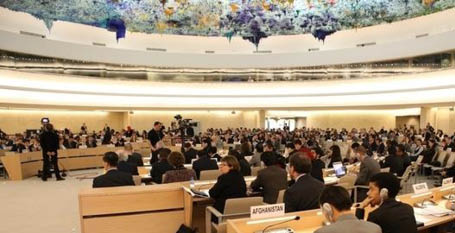main goals were to promote LGBT rights.
It was unclear whether this or the fact that some of the organisations were not registered with the government was the main reason for the ban. In the statement the Ministry said "Fighting for this particular objective (LGBT rights) deviates from the Islamic faith. Moreover, Comango is an organisation which is not registered under the Societies Act 1966,"
The attempt to ban the country’s leading coalition of human rights NGOs has been declared a disturbing assault on the rights to freedom of expression and association by Amnesty International and other humanitarian organisations.
“Outlawing Comango is a deeply disturbing action aimed at silencing important critical voices that have advocated on the world stage for Malaysia to uphold international human rights law and standards,” said Hazel Galang-Folli, Malaysia researcher at Amnesty International.
Comango responded to the move by saying that, as a coalition of different NGOs rather than a single organization, it is not bound by the requirement to register under Malaysia’s Societies Act, which dates back to 1966. A spokesperson also said they will file a judicial review in the High Court to fight the decision.
The coalition raised the ire of the Malaysian authorities in March 2013 when it submitted a report to the United Nations, ahead of Malaysia being scrutinized under the Universal Periodic Review (UPR) session late last year.
Its report pointed to a wide range of areas where the Malaysian authorities need to improve their human rights record – not only on freedom of religion and the discrimination of lesbian, gay, bisexual, transgender and intersex (LGBTI) individuals, but also on the rights to freedom of expression, assembly and association. Amnesty International and other non-governmental organizations highlighted similar concerns in recommendations to the UN Human Rights Council last year ahead of its UPR of Malaysia.
Although Malaysians practice a variety of religious faiths, the Constitution prescribes Islam, which is followed by more than 60 percent of the population. This proves a major stumbling block for LGBT people in the country. Last summer Director-General of Malaysia’s Department of Islamic Development suggested passing laws to formally outlaw same-sex marriage in response to recognition of gay unions that took place in neighbouring ThailaOn Wednesday, Malaysia’s Ministry of Home Affairs declared that the National Coalition of Malaysian NGOs (Comango) is illegal. The ministry claimed that the coalition’s main goals were to promote LGBT rights.
On Wednesday, Malaysia’s Ministry of Home Affairs declared that the National Coalition of Malaysian NGOs (Comango) is illegal. The ministry claimed that the coalition’s main goals were to promote LGBT rights.
It was unclear whether this or the fact that some of the organisations were not registered with the government was the main reason for the ban. In the statement the Ministry said "Fighting for this particular objective (LGBT rights) deviates from the Islamic faith. Moreover, Comango is an organisation which is not registered under the Societies Act 1966,"
The attempt to ban the country’s leading coalition of human rights NGOs has been declared a disturbing assault on the rights to freedom of expression and association by Amnesty International and other humanitarian organisations.
“Outlawing Comango is a deeply disturbing action aimed at silencing important critical voices that have advocated on the world stage for Malaysia to uphold international human rights law and standards,” said Hazel Galang-Folli, Malaysia researcher at Amnesty International.
Comango responded to the move by saying that, as a coalition of different NGOs rather than a single organization, it is not bound by the requirement to register under Malaysia’s Societies Act, which dates back to 1966. A spokesperson also said they will file a judicial review in the High Court to fight the decision.
The coalition raised the ire of the Malaysian authorities in March 2013 when it submitted a report to the United Nations, ahead of Malaysia being scrutinized under the Universal Periodic Review (UPR) session late last year.
Its report pointed to a wide range of areas where the Malaysian authorities need to improve their human rights record – not only on freedom of religion and the discrimination of lesbian, gay, bisexual, transgender and intersex (LGBTI) individuals, but also on the rights to freedom of expression, assembly and association. Amnesty International and other non-governmental organizations highlighted similar concerns in recommendations to the UN Human Rights Council last year ahead of its UPR of Malaysia.
Although Malaysians practice a variety of religious faiths, the Constitution prescribes Islam, which is followed by more than 60 percent of the population. This proves a major stumbling block for LGBT people in the country. Last summer Director-General of Malaysia’s Department of Islamic Development suggested passing laws to formally outlaw same-sex marriage in response to recognition of gay unions that took place in neighbouring Thailand.

